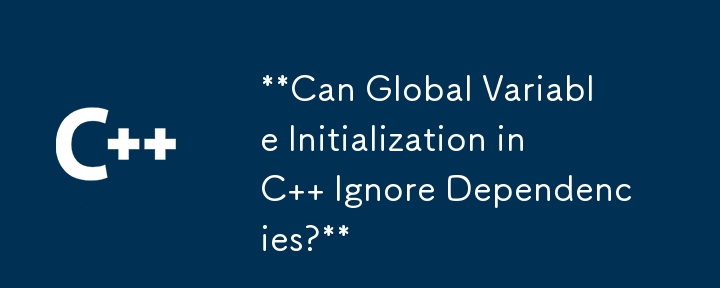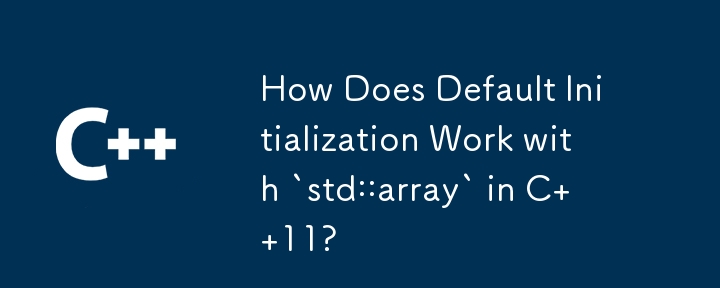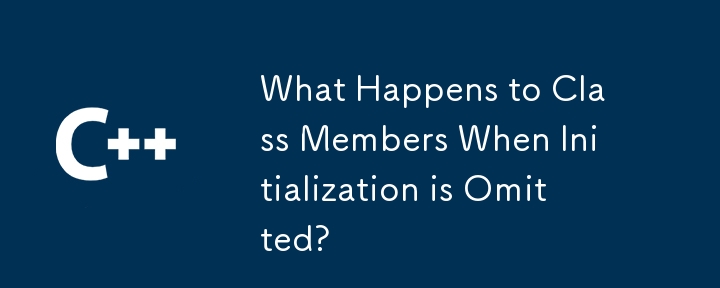Found a total of 10000 related content

C Initialization techniques
Article Introduction:There are many initialization methods in C, which are suitable for different scenarios. 1. Basic variable initialization includes assignment initialization (inta=5;), construction initialization (inta(5);) and list initialization (inta{5};), where list initialization is more stringent and recommended; 2. Class member initialization can be assigned through constructor body or member initialization list (MyClass(intval):x(val){}), which is more efficient and suitable for const and reference members. C 11 also supports direct initialization within the class; 3. Array and container initialization can be used in traditional mode or C 11's std::array and std::vector, support list initialization and improve security; 4. Default initialization
2025-07-18
comment 0
814
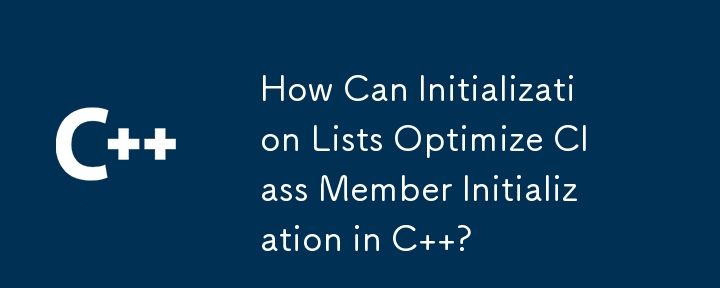

Is Java's Double Brace Initialization Efficient?
Article Introduction:Efficiency of Java "Double Brace Initialization"?Main Question: Efficiency of Double Brace InitializationYes, double brace initialization (DBI)...
2024-12-23
comment 0
733

Why Does Java Mandate Variable Initialization?
Article Introduction:The Necessity of Variable Initialization in JavaJava enforces the mandatory initialization of local variables, including primitives, which may...
2024-12-01
comment 0
703



Member Initialization Lists in C
Article Introduction:In C, the member initialization list is used to initialize member variables in the constructor, especially for const members, reference members, class members without default constructors, and performance optimization. Its syntax begins with a colon and is followed by a comma-separated initialization item. The reasons for using member initialization list include: 1. The const member variable must be assigned value at initialization; 2. The reference member must be initialized; 3. Class type members without default constructors need to explicitly call the constructor; 4. Improve the construction efficiency of class type members. In addition, the initialization order is determined by the order of members declared in the class, not the order in the initialization list, so be careful to avoid relying on uninitialized members. Common application scenarios include initialization constants, references, complex objects and parameter-transferred constructions
2025-07-19
comment 0
118

Why Use Static Initialization Blocks in Java?
Article Introduction:Static Initialization Blocks: Why a Separate Block?You might have encountered the concept of "static initialization blocks" in Java. They are...
2024-12-20
comment 0
1084

Item Use lazy initialization sparingly
Article Introduction:What is lazy initialization?
Definition: Defer initialization of a field until it is accessed for the first time.
Benefits: Avoids unnecessary initializations if the field is never used.
Applications: Used for static and ins fields
2025-01-09
comment 0
498
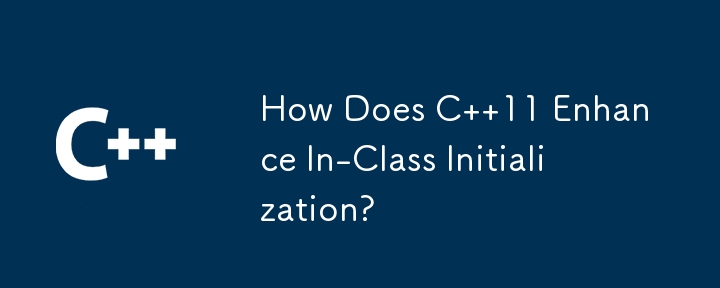
How Does C 11 Enhance In-Class Initialization?
Article Introduction:C 11 In-Class Initialization: Addressing Past RestrictionsBefore C 11, in-class initialization was limited to static const members of integral...
2024-12-02
comment 0
676













